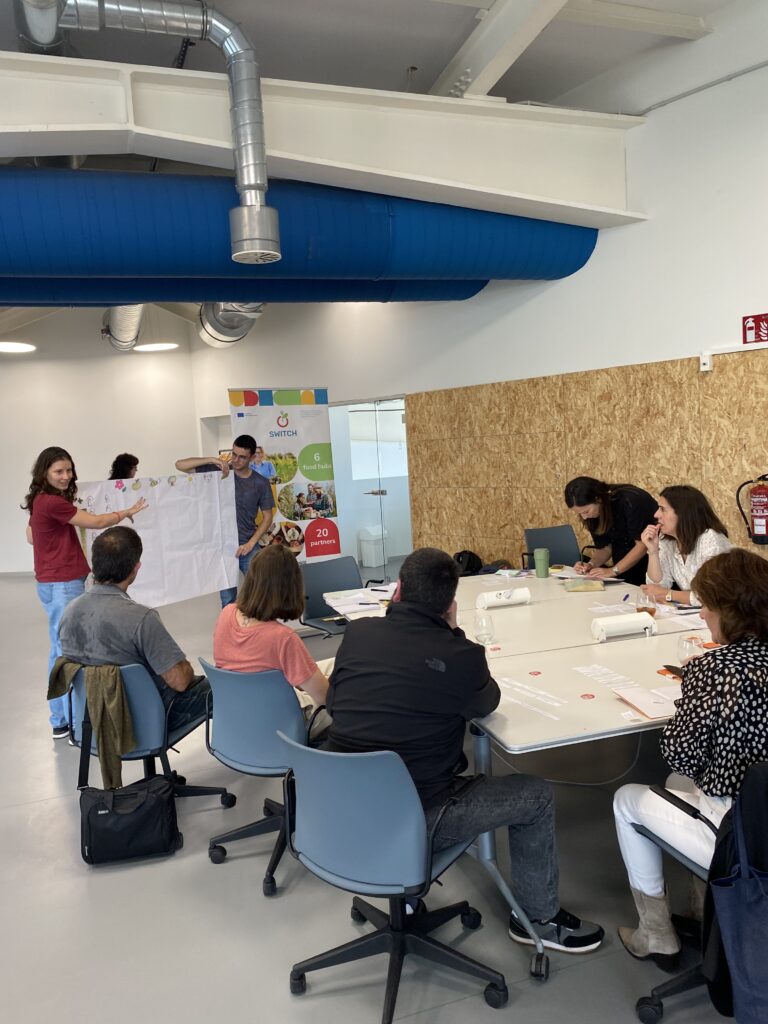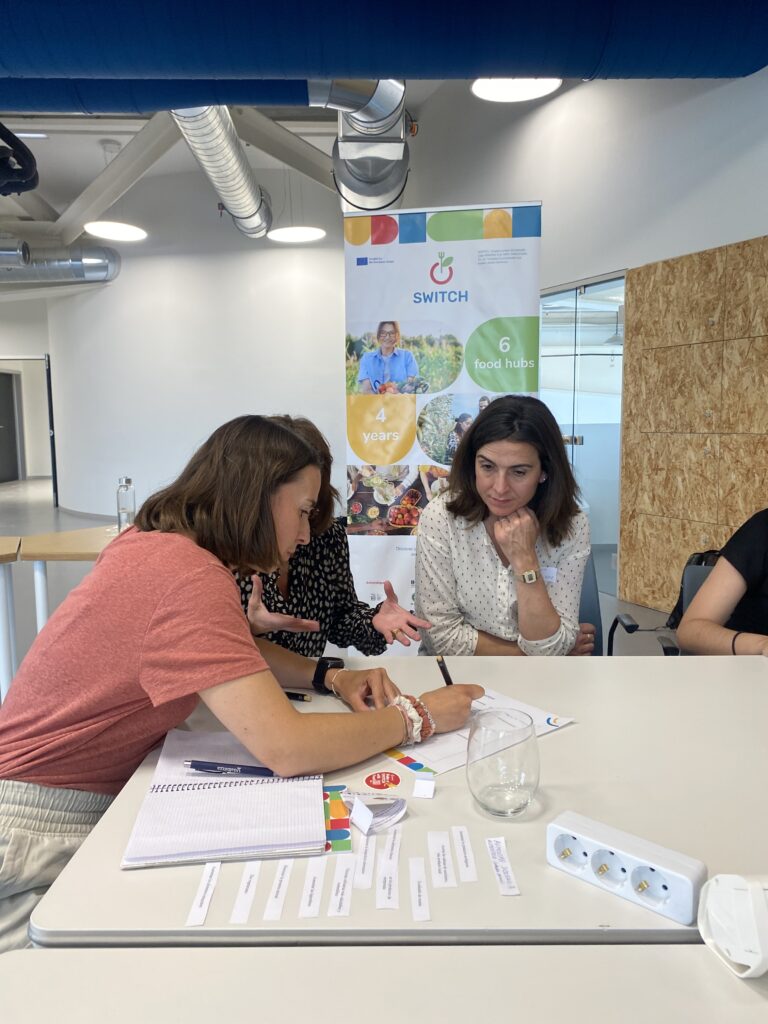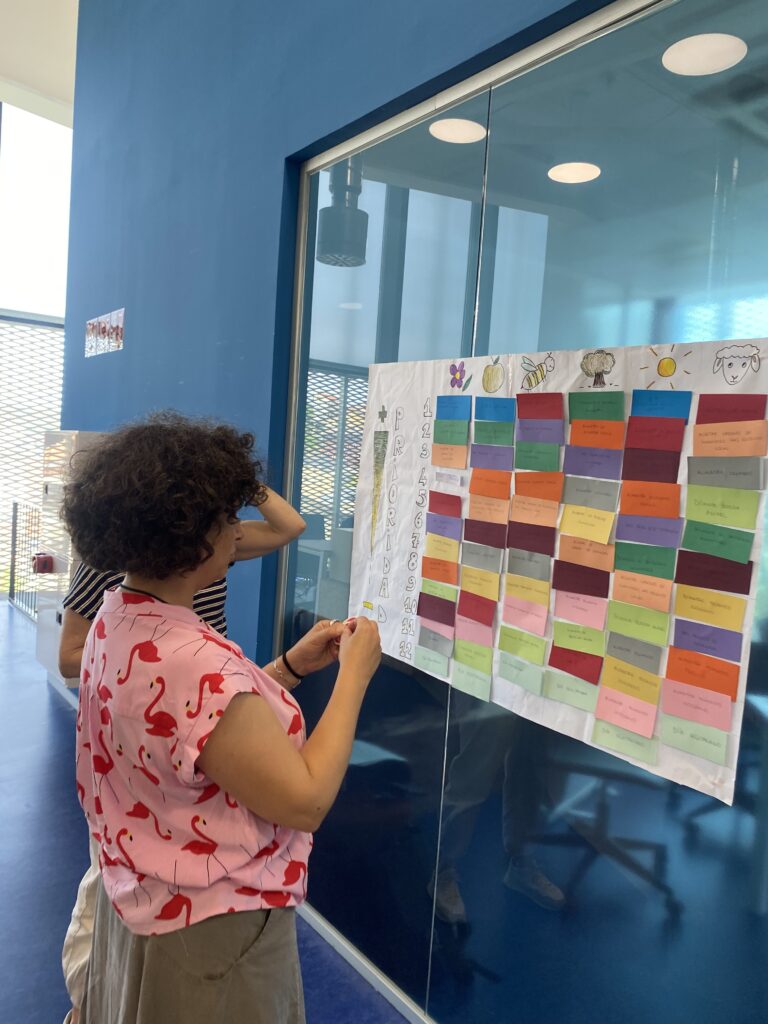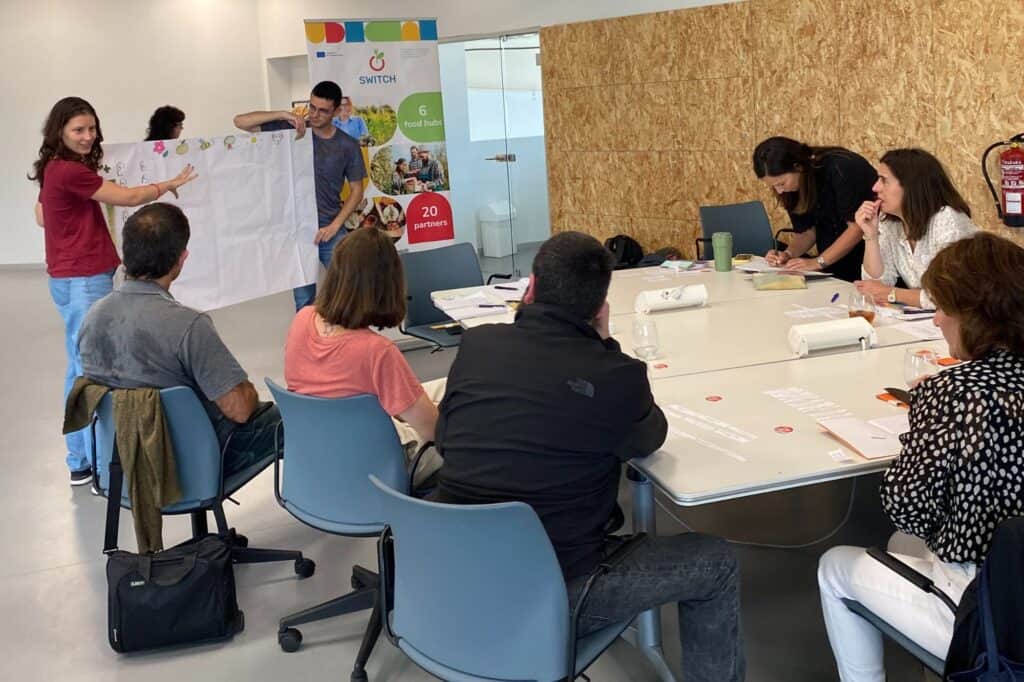On May 27, the city of Donosti-San Sebastián hosted a pivotal SWITCH event that brought together stakeholders from the food, education, and sustainability sectors. The event centered on one of the most impactful public food environments in our communities: school meals. This event was a rich space for dialogue on how we nourish future generations while caring for the planet and preserving cultural identity.
Rethinking school meals
At the heart of the discussions was a clear consensus: school meals must evolve to reflect the urgent environmental and cultural challenges of our time. Two critical topics emerged across the sessions: food waste reduction, shortening of food supply chains and increase of fresh, local and seasonal products.
Food waste, especially in institutional settings like schools, is not only a logistical and financial concern but also an environmental one. Participants emphasized the need to implement strategies that measure, monitor, and prevent waste across the entire food chain from procurement to plate. Tools like portion planning, sensory education, and feedback mechanisms with children were suggested as ways to shift behaviors and promote a culture of value around food.
Fresh and seasonal-based menus, linked with local resources, could reduce the impact on the environment while enhancing the acceptability of dietary changes. In line with this, shortening food supply chains can act as an integrated measure that brings cascading effects to transit towards healthy and sustainable school meals. Eco-design was explored as a comprehensive strategy, encouraging the redesign of meal delivery with environmental impact in mind, considering packaging, sourcing, energy use, and lifecycle analysis of every product involved in school meal programs.
Focus groups activity
The event also featured two focus groups and a vibrant debate, which brought a more humanistic layer to the sustainability conversation. There was a strong call to recognize school canteens not just as places for nutrition but as platforms for cultural education.
One of the most powerful messages that emerged was the importance of nurturing the local culture, language, and food traditions of the Euskera-speaking region. Participants discussed how traditional ingredients, recipes, and food rituals can help children develop a deeper connection to their heritage, while also supporting local producers and reinforcing food sovereignty, both at school canteens and in the Basque region..
Maintaining this cultural perspective is essential. As scientists and policymakers often focus on measurable outcomes, events like this remind us that sustainability also involves stories, identity, and belonging. Food is both material and symbolic; it shapes how children relate to themselves, their land, and their future.
From dialogue to ACTION
The SWITCH event in Donosti-San Sebastián reinforced the idea that sustainability in school meals requires a multidimensional approach, one that bridges science, design, education, and culture. As we move forward, it is essential to translate these conversations into tangible frameworks, policies, and collaborative efforts that empower communities and protect our ecosystems.
The event was not only a reflection of local commitment but also a model for how interdisciplinary dialogues can inspire systemic change.




